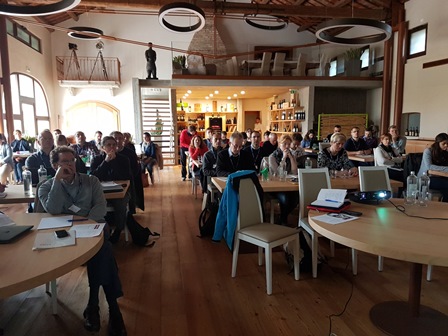 Large-scale methane measurements on individual ruminants for genetic evaluations
Large-scale methane measurements on individual ruminants for genetic evaluations
Annual METHAGENE Workshop – Padova, IT
From October 12 to 14, 2016, 49 researchers from across Europe came together during the METHAGENE workshop to connect their work related to measuring and analysing large scale individual methane emissions, and to discuss next steps. The meeting took place in Padova, Italy.
Updates of each working group were given by the WG-leaders, and roadmaps for the final year of the Action were defined. This was done in a mix of introductory overview talks by invited speakers, more in depth information by early stage researchers and discussions in break-out sessions to let nutritionists, physiologists, environmental engineers, breeders and micro-biologists talk to each other on the best equipment and protocol to measure individual methane, on possible proxies for methane, and the design of a breeding programme for lower emitting ruminants.
The success of the METHAGENE network is still that it unites researchers from across Europe to work on new solutions in breeding for low-emitting ruminants. The METHAGENE consortium was pleased to be able to welcome new researchers to this Workshop. The network is continuously growing in number and geographically, especially with researchers from Central European states.
Bringing together as much researchers on methane emissions by individual ruminants as possible is necessary to realise a critical mass that is needed to find genetic-based differences in ruminants' emissions. This data can provide new solutions for breeding programmes that select on low-methane emitting animals and reduce the carbon footprint of livestock.
Presentations of the meeting can be found on this page (password-protected, for the password please contact Yvette.deHaas@wur.nl).



